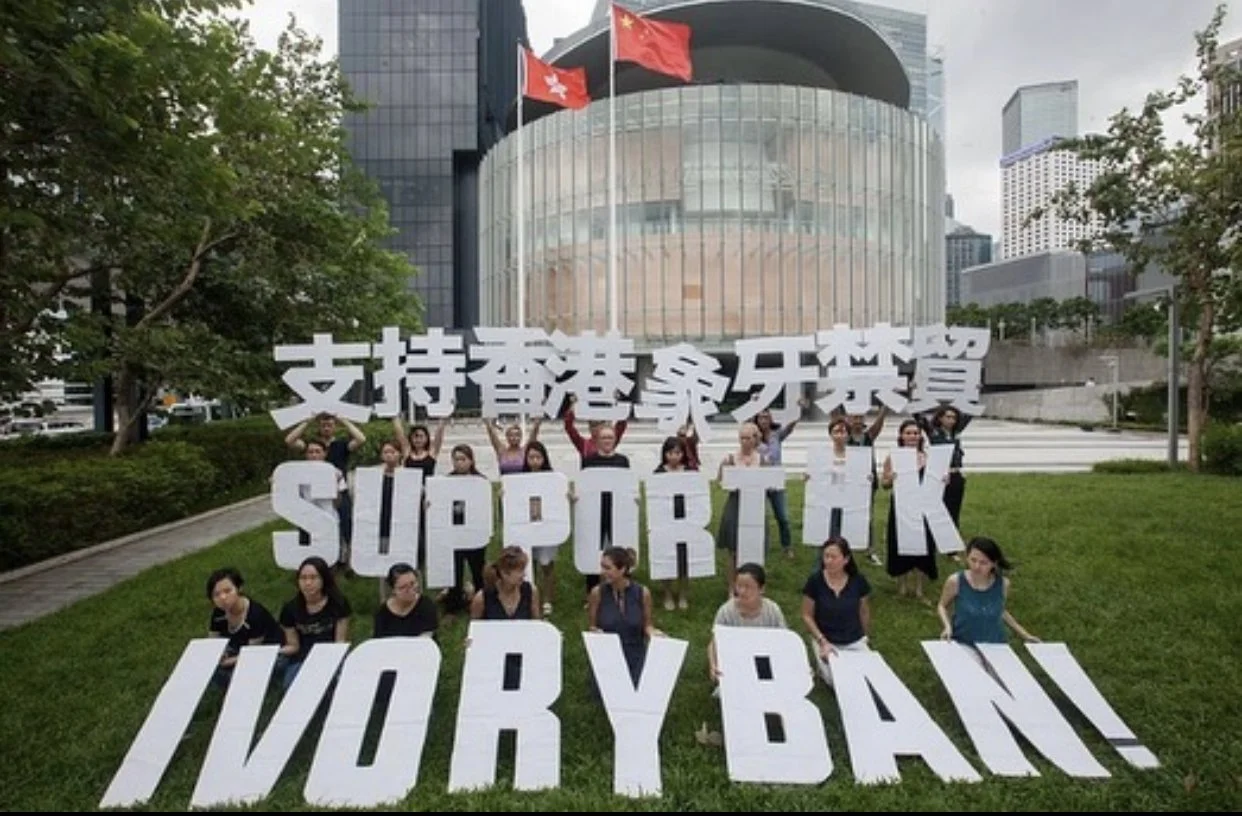Hong Kong's Ivory Ban Comes Into Force.
A ban on selling most ivory products in Hong Kong came into effect on 31 December 2021, the culmination of a three-year process to eliminate the once rampant trade in the city.
Hong Kong lawmakers in 2018 backed a bill opting for a gradual phasing out of the trade - a move some conservationists at the time criticised as a loophole that could be exploited. The city has been accused of playing an oversized role in the industry, with one 2019 report by a local conservation group saying it accounted for around a fifth of all global ivory seizures in the last decade.
On the eve of the ban, small queues of shoppers were spotted outside some stores selling the product in the city's Sheung Wan district, according to local media reports. The new rules ban the "import, re-export, and commercial possession of elephant ivory", but make an exception for antique pieces dating from before 1925. Offenders could face a maximum fine of HK$10 million ($1.3 million) and 10 years' imprisonment.
WildAid has been advocating for a complete ban for many years, working closely with partners and legislators on this ivory law. Their team in Hong Kong has been tracking 100 ivory shops, comparing this past year to 2014-15. They found that 80% of shops that had been selling ivory were already closed or changed to another business (i.e. jewellery).
Unfortunately, they also found that many remaining traders said they will change to sell mammoth tusks after the ban. Traders were also looking to the government for solutions to their stockpiles, specifically compensation for their remaining inventory. It is therefore incumbent on the Hong Kong Government to strictly regulate and control this trade to ensure that they do not mix goods with any remaining elephant ivory. There should also be a mechanism developed to identify mammoth ivory and to conduct regular inspections.
Hong Kong authorities in 2017 made their biggest ivory bust in three decades, with the haul of 7.2 tonnes of tusks valued at around $9 million. Authorities seized another 2.1 tonnes in 2019 -- after the phasing-out process had begun.
African ivory was a sought-after status symbol in China and used to fetch as much as $1,100 a kilogram ($500 a pound). China's own ban on the ivory trade has been in force since 2018.
A spokesman for Hong Kong's Agriculture, Fisheries and Conservation Department said the government was "committed to the protection of endangered species, including elephants".
John Baker, WildAid Chief Program Officer said: -
“This ban on the ivory trade is so important for protecting elephants. We remain grateful to the legislators and citizens for supporting this law. Along with the new wildlife provisions in the Organized and Serious Crime Ordinance, Hong Kong is leading by example on shutting down the wildlife trade,”
The Hong Kong public has overwhelmingly supported the ivory ban and ending the ivory trade. According to WildAid’s 2015 survey, 76% of the Hong Kong public supported the ivory ban and about 90% said they never bought ivory nor did they know anyone who bought ivory in the previous 3 years.
With its busy port and other transport links, Hong Kong had thrived as a major transit point for illegal trade in parts of endangered animals like elephants, rhinos and pangolins -- most of it headed for consumers in mainland China. In August, wildlife crime was included into Schedule 1 of the Organised And Serious Crimes Ordinance, Cap 455 - further enhancing the powers of authorities when investigating wildlife crime, and hopefully curbing the volume of illegal wildlife coming into and through Hong Kong.
Courtesy of Kat Mak


